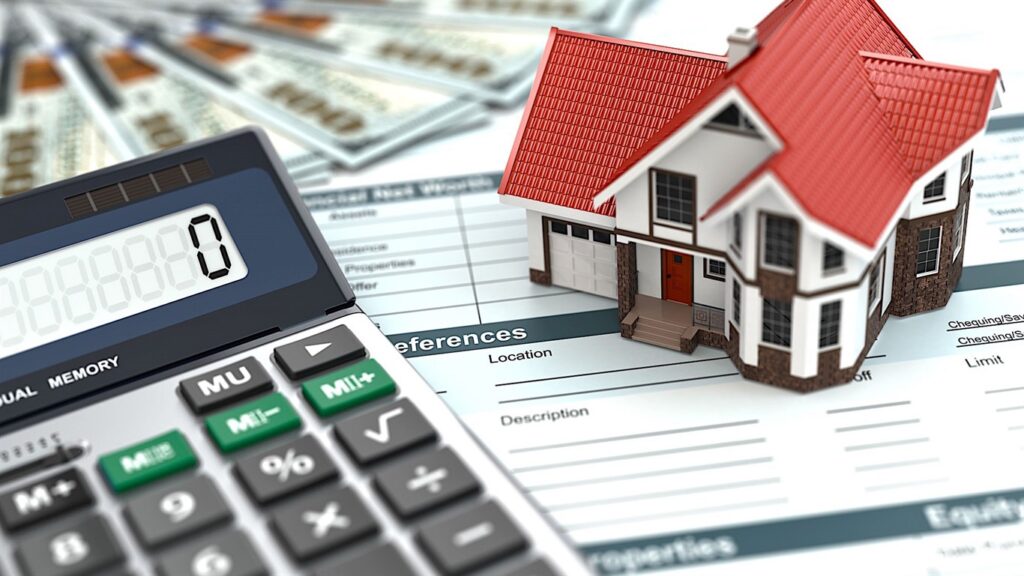Table of Contents
ToggleDo you know the pros and cons of financing your home in Egypt?
Homeownership is a major milestone in life, often seen as a symbol of stability and long-term investment. In Egypt, as in many parts of the world, purchasing a home is increasingly achieved through financing or mortgage loans rather than full cash payment. With growing urban development, increasing property prices, and supportive government housing initiatives, real estate financing has become an essential part of the Egyptian housing market.
However, like any financial decision, financing a home in Egypt comes with both advantages and disadvantages. In this article, we explore the key pros and cons of home financing in Egypt to help prospective buyers make an informed decision.
Pros of Financing Your Home in Egypt
Affordability and Accessibility
One of the biggest advantages of financing a home in Egypt is making property ownership accessible to a broader segment of the population. Many Egyptians, especially young professionals and middle-income families, may not have enough cash to buy a property outright. Financing allows buyers to spread the cost over several years, making homeownership possible without the need for large, upfront capital.
Preservation of Cash Flow
Financing enables homebuyers to retain liquidity and use their savings for other investments or personal needs. Instead of depleting one’s bank account to pay for a property in full, monthly mortgage payments make it easier to manage household budgets and maintain financial flexibility.
Leverage and Potential Capital Gain
By using a mortgage, buyers can leverage their investment. If property values rise—as they have in many parts of Egypt—homeowners benefit from capital appreciation on the entire value of the home, even though they may have only paid a fraction of the price upfront. This can lead to significant returns if the property market performs well.
Government-Backed Housing Programs
The Egyptian government has implemented initiatives like the “Social Housing and Mortgage Finance Fund” which provides subsidized loans to low- and middle-income citizens. These programs offer favorable interest rates, extended repayment periods, and reduced down payments, further encouraging financing as a route to homeownership.
5. Structured Repayment Terms
Mortgage loans in Egypt are often structured with clear and fixed monthly payments, helping borrowers plan their finances with predictability. This structured repayment system can also help build creditworthiness and financial discipline.
6. Real Estate as a Hedge Against Inflation
Real estate is generally considered a hedge against inflation. With inflation rates fluctuating in Egypt, owning a home through financing can be a long-term strategy to protect against the erosion of purchasing power, especially if fixed interest rates are locked in.
Cons of Financing Your Home in Egypt
1. High Interest Rates
Despite progress in the financial sector, interest rates on mortgages in Egypt remain relatively high, especially for loans not backed by government programs. This means that the total cost of the home over the loan term can be significantly more than the initial purchase price. High interest rates can also lead to longer loan tenures and higher monthly payments.
2. Hidden Fees and Complex Terms
Some banks and financial institutions charge additional fees such as administrative fees, insurance premiums, and early repayment penalties. These costs can add up and make financing more expensive than it initially appears. Additionally, the legal and contractual language can be complex, leading to misunderstandings or unfavorable loan terms for the uninformed borrower.
3. Rigid Qualification Criteria
To obtain a mortgage in Egypt, borrowers must meet specific criteria regarding income, employment status, credit history, and age. For self-employed individuals or those working in the informal sector, qualifying for a loan can be challenging. This can exclude a large portion of the population from accessing housing finance.
4. Risk of Foreclosure
If a borrower is unable to meet repayment obligations, the bank has the legal right to repossess the property. This risk becomes particularly serious during economic downturns, job losses, or personal financial crises. Foreclosure not only results in the loss of the home but also damages the borrower’s credit history.
5. Long-Term Financial Commitment
A mortgage is a long-term financial obligation that can last 10 to 30 years. This commitment may limit flexibility, especially if the homeowner wishes to move, invest in other ventures, or adapt to changing family or career needs. Some borrowers may feel “trapped” by their monthly payments.
6. Uncertain Property Market Conditions
While real estate is generally a stable investment, the property market in Egypt can be influenced by factors such as political instability, currency fluctuations, and changes in housing demand. A drop in property value could leave homeowners with a loan balance greater than the value of their home.
Other Considerations
Legal and Regulatory Framework
Egypt has made efforts to improve its mortgage laws and strengthen its financial sector. However, legal enforcement and bureaucracy can still pose challenges. Buyers are advised to conduct thorough due diligence and work with reputable developers, agents, and lawyers when entering into financing agreements.
Banking Sector Reforms
With the Central Bank of Egypt encouraging greater financial inclusion and mortgage market development, more banks are offering diversified mortgage products. These include variable interest rate loans, Islamic-compliant financing options, and joint income-based loans that can benefit dual-income households.
Currency Risk for Foreign Buyers
Foreign nationals interested in financing property in Egypt may face currency exchange risks. Repaying loans in Egyptian pounds while earning in a foreign currency can lead to fluctuations in effective monthly payments.
Conclusion
Financing your home in Egypt can be a smart move, especially for those who are looking to own property without paying the full cost upfront. With the right financing plan, buyers can benefit from rising property values, government support programs, and flexible payment options.
However, it is important to weigh these benefits against the potential drawbacks: high interest rates, the risk of default, long-term debt commitments, and complex loan structures. Prospective homebuyers should evaluate their financial stability, seek professional advice, and read all loan agreements carefully before committing to a mortgage.
Ultimately, whether financing is the right choice depends on individual goals, income level, risk tolerance, and market conditions. For many Egyptians, financing represents a viable pathway to owning a home and achieving long-term financial security.
Frequently Asked Questions
What are the main advantages of financing a home in Egypt?
The primary advantages include:
-
Affordability: Home financing allows buyers to purchase property without needing the entire amount upfront, making homeownership more accessible.
-
Cash Flow Management: Monthly payments preserve personal savings for other uses or investments.
-
Leverage: Buyers can benefit from property value appreciation, gaining equity on the full value of the home even if only a small down payment was made.
-
Government Programs: Initiatives like the Social Housing and Mortgage Finance Fund offer subsidized loans for low and middle-income groups.
-
Fixed Payment Structure: Many loans have predictable repayment terms that help in budgeting.
-
Inflation Hedge: Real estate values tend to increase over time, protecting buyers from currency devaluation and inflation.
What are the main drawbacks of home financing in Egypt?
Key disadvantages include:
-
High Interest Rates: Compared to global standards, interest rates in Egypt are relatively high, increasing the total repayment amount.
-
Hidden Costs: Administrative fees, insurance, and penalties may not be clearly stated and add to the overall cost.
-
Strict Eligibility: Lenders require stable income, credit history, and formal employment, excluding many Egyptians.
-
Foreclosure Risk: Missing payments could result in losing the home and damaging your credit record.
-
Long-Term Debt: Mortgages typically span 15–30 years, which can limit financial flexibility.
-
Market Risks: Unpredictable real estate trends, political or economic instability may reduce the property’s value over time.
What are the typical interest rates for mortgages in Egypt?
Interest rates vary by bank and loan type:
-
Conventional mortgages: Typically range from 15% to 20% annually (as of recent years)
-
Government-subsidized loans: Can go as low as 3% to 8%, depending on income level and housing program
-
Islamic (Sharia-compliant) loans: May have different structures but are comparable in total cost
Rates are often fixed or reducing-balance, and borrowers should compare offers and clarify which structure is being used to calculate monthly payments.
